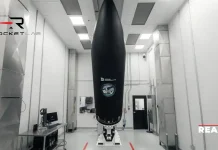Geneoscopy Inc., a life sciences company focused on the development of diagnostic tests for gastrointestinal health, announced findings from an early cost-effectiveness modeling study that aimed to assess the total costs and health outcomes associated with the use of an investigational RNA-FIT biomarker panel versus multi-target stool DNA (mt-sDNA), fecal immunochemical test (FIT), and colonoscopy alone for the screening of colorectal cancer (CRC). Geneoscopy’s RNA-FIT test is being evaluated as a potential noninvasive, at-home diagnostic screening test to detect colorectal neoplasms, including advanced adenomas, in average-risk individuals. The data was highlighted in a poster at the 2022 Digestive Disease Week meeting being held in San Diego from May 21-24. The poster can be viewed here.
“Screening for CRC is critical for early detection and intervention, and it saves lives. Unfortunately, approximately 40% of people eligible for CRC screenings fail to get screened, in part due to the invasive and time-consuming nature of the gold-standard option – a colonoscopy. Noninvasive screening may serve as an alternative; however, available options have lower detection rates for pre-cancerous polyps,” stated Haytham Gareer, MD, PhD, MBA, FACS, Chief Medical Officer for Geneoscopy and lead author on the poster. “The findings from this health outcomes analysis reinforce the potential for our RNA-FIT test to be a significant advancement in CRC screening by helping to reduce overall CRC cases and deaths while being affordable for patients.”
To conduct the analysis, the model combined data on sensitivity, specificity, and compliance for each screening method with incidence and prevalence rates to assess each method’s detection rates. Data on distribution across disease stages and five-year survival rates were used to determine long-term outcomes. The model also accounted for the cost of screening, complications associated with colonoscopy, surveillance programs, and the cost of CRC treatment.
Responsible for over 50,000 deaths annually, colorectal cancer (CRC) is the second leading cause of cancer death in the United States. CRC usually begins as a growth (or polyp) that develops into cancer over time. Early detection and treatment are crucial to improve survival; however, many newly diagnosed patients suffer from advanced disease. Colonoscopy remains the gold-standard for CRC screening in the U.S., yet this method is frequently met with patient aversion due to its required bowel preparation, sedation, and associated discomfort, resulting in low patient compliance. Currently available noninvasive screening methods lack sufficient levels of sensitivity to reliably detect both early-stage CRC and high-risk precancerous lesions, including advanced adenomas which are a precursor in up to 70 percent of CRC cases.




